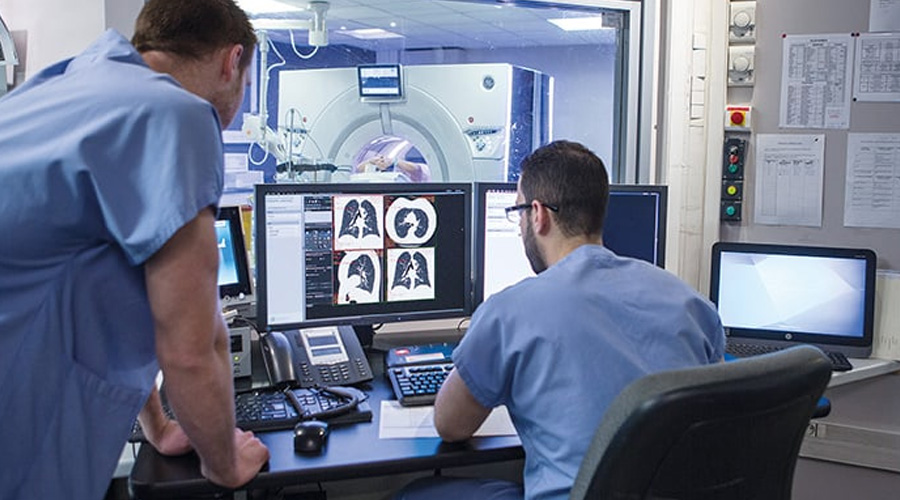
AI’s Advancements in Medical Diagnosis: Revolutionizing HealthcareAI’s Advancements in Medical Diagnosis: Revolutionizing Healthcare Artificial intelligence (AI) is rapidly transforming the field of medical diagnosis, offering innovative solutions to improve healthcare outcomes. The advancements made in AI technology have empowered medical professionals with powerful tools that enhance accuracy, efficiency, and accessibility. Early Detection and Disease Prevention AI algorithms can analyze vast amounts of medical data, identifying patterns and correlations that are often overlooked by human experts. This capability enables early detection of diseases such as cancer, heart disease, and diabetes, allowing for timely intervention and improved treatment outcomes. Additionally, AI can assess risk factors and predict the likelihood of developing certain diseases, facilitating personalized preventive measures. Image Analysis and Interpretation AI-powered image analysis tools revolutionize medical imaging, including X-rays, CT scans, and MRIs. These tools enhance image clarity, identify subtle abnormalities, and quantify disease severity. By automating the interpretation process, AI minimizes human error, accelerates diagnosis, and improves treatment planning. Natural Language Processing (NLP) NLP enables AI to understand and process unstructured medical text data, such as patient records, lab results, and clinical notes. This allows AI systems to extract insights and provide automated diagnoses or treatment recommendations. By leveraging NLP, healthcare providers can access a comprehensive view of a patient’s medical history, identify potential drug interactions, and make more informed decisions. Clinical Decision Support AI algorithms can act as clinical decision support systems, providing real-time guidance to healthcare professionals. These systems incorporate evidence-based knowledge and patient data to analyze symptoms, suggest diagnosis options, and recommend treatment plans. By augmenting the expertise of clinicians, AI enhances the accuracy and consistency of diagnosis and treatment. Remote and Telehealth Applications AI-driven medical diagnosis tools can be deployed for remote and telehealth services, expanding access to healthcare in rural or underserved areas. Patients can consult with healthcare providers virtually, providing medical data through smartphone apps or wearable devices. AI algorithms can analyze this data and provide preliminary diagnoses, enabling remote monitoring and timely intervention. Challenges and Future Directions While AI holds immense promise for medical diagnosis, it also presents challenges such as data privacy, algorithmic biases, and the need for rigorous validation. Future research and development will focus on addressing these concerns, ensuring the ethical, safe, and effective deployment of AI in healthcare. In conclusion, AI’s advancements in medical diagnosis are revolutionizing healthcare by improving accuracy, efficiency, and accessibility. As AI technology continues to evolve, we can expect even more groundbreaking applications that transform patient care and lead to improved health outcomes for all.
Posted inNews